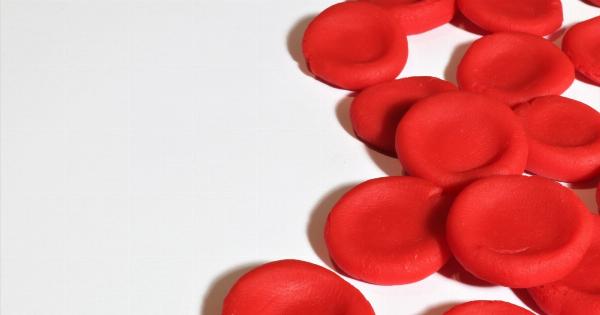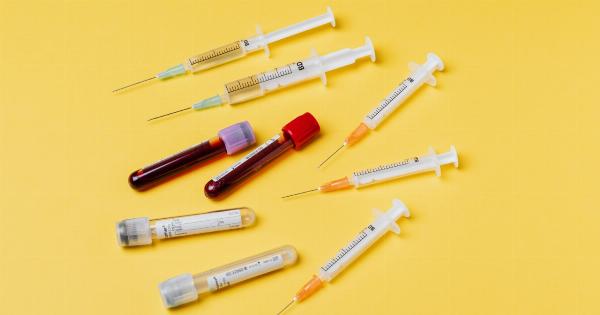Blood donation is a selfless act that can help save lives and make a real difference in the world. By becoming a blood donor, you have the opportunity to contribute to the well-being of others and support medical research.
Blood transfusions are essential for various medical procedures, including surgeries, trauma cases, and cancer treatments. Unfortunately, the demand for blood is often higher than the supply, making blood donation an ongoing crucial need.
The Importance of Donating Blood
Donating blood is a vital process that aids in maintaining an adequate blood supply. Blood donations are required for several reasons, including:.
- Emergency situations: Accidents and emergencies can occur at any time, often resulting in a need for immediate blood transfusions.
- Medical procedures: Surgeries, organ transplants, childbirth complications, and cancer treatments often necessitate blood transfusions to replace lost blood or support the patient’s immune system.
- Chronic conditions: People with conditions like sickle cell anemia or thalassemia require regular blood transfusions to manage their health and improve their quality of life.
- Research: Blood donation plays a vital role in advancing medical research, as scientists require samples for studies focused on finding cures for various diseases and improving healthcare practices.
The Process of Blood Donation
The process of blood donation is straightforward and typically takes around one hour. Here are the main steps involved:.
- Registration: Upon arriving at a blood donation center or a blood drive, you will be requested to fill out a registration form providing necessary personal details.
- Health screening: A brief health examination will be conducted to ensure you are eligible to donate blood. It includes checking blood pressure, hemoglobin levels, and assessing your overall health.
- Blood collection: Once cleared, a healthcare professional will insert a sterile needle into your arm, collecting around 470ml (or one pint) of blood, which usually takes 8-10 minutes.
- Refreshments and rest: After donating blood, you will be provided with fluids and snacks to help restore your energy levels. It is common to rest for 15-20 minutes before leaving the donation site.
Blood Donor Requirements
To ensure the safety and well-being of both donors and recipients, specific requirements need to be met. The general requirements for becoming a blood donor are:.
- Age: Donors must be at least 17 years old, or 16 with parental consent, in most countries. The upper age limit for blood donation varies but is usually around 65-70 years.
- Weight: Donors need to weigh at least 50 kg (110 lbs) to ensure they can safely tolerate the blood volume loss.
- Health: Donors must be in good health and feeling well on the day of donation. Certain conditions, medications, or recent travels to specific regions may temporarily or permanently defer someone from donating blood.
The Benefits of Donating Blood
Besides the satisfaction of knowing you are helping others in need, donating blood carries some personal benefits as well. These benefits include:.
- Free health check-up: The health screening conducted prior to blood donation can provide valuable information about your wellbeing, including blood pressure and hemoglobin levels.
- Reduced risk of heart disease: Regular blood donation has been associated with a lower risk of cardiovascular diseases by reducing blood viscosity and risk of iron overload in the body.
- Better emotional well-being: Donating blood can give you a sense of purpose and fulfillment, boosting your mood and overall emotional well-being.
- Opportunity to save lives: Every blood donation has the potential to save up to three lives, making you a hero to those in need.
How Often Can You Donate Blood?
The frequency of blood donation depends on various factors, including local regulations and your individual health.
In most countries, donors can donate blood every 8-12 weeks, allowing ample time for the body to restore its blood volume and iron levels. It is important to adhere to these guidelines to ensure your well-being and provide high-quality blood to those in need.
Find a Blood Donation Center Near You
If you are interested in becoming a blood donor, you can easily find a blood donation center near you. Local hospitals, blood banks, and various organizations often hold blood drives in partnership with these centers.
Additionally, numerous online resources provide information about upcoming blood donation events and locations, making it convenient for you to contribute to this important cause.
Spread the Word about Blood Donation
One of the most effective ways to increase the number of blood donors is through awareness and education. By spreading the word about the importance of blood donation, you can encourage friends, family, and colleagues to become donors.
Share your experiences, volunteer at blood drives, and engage in discussions about the significance of donating blood. Together, we can make a substantial impact on countless lives.
Make a Difference Today
Becoming a blood donor allows you to make a difference in the lives of others. By donating blood, you are giving someone the gift of life, hope, and a brighter future.
Remember, no act of kindness is too small, and your decision to become a blood donor can have a lasting impact on those in need. Join the lifesaving community of blood donors and start your journey to becoming a hero today!.




























